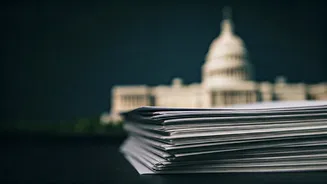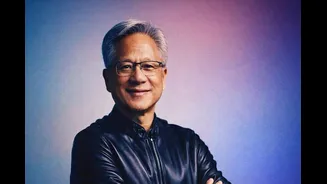Trump's Remarks Analyzed
Donald Trump's recent comments regarding foreign students come amid growing discussions about US visa policies. While the specific nature of these potential
restrictions remains unclear, Trump's remarks suggest a cautious approach towards international students. His statements hint at concerns about national security and the potential for misuse of student visas. This stance reflects a broader trend of stricter immigration control, a policy frequently favored by the former President. The tone of his comments aligns with his previous actions and policies on immigration matters. These actions often prioritize stricter enforcement and greater scrutiny of foreign nationals entering the country, especially when national security is at stake. Furthermore, Trump's views seem to be influenced by political considerations, aimed at appealing to his core supporters and reinforcing his image as a protector of American interests. The full scope of the implications of his statements remains to be seen, but they certainly signal a shift toward greater control over student visa processes.
Visa Crackdown Implications
Stricter visa regulations could have several important effects. Firstly, it could impact the number of international students choosing to study in the United States. A reduction in foreign students could damage the US economy. Many international students contribute significantly to the US economy through tuition fees, living expenses, and research funding. Also, a decrease in the presence of foreign students would have a negative effect on the cultural exchange and diversity on college campuses, limiting the exposure of American students to diverse perspectives. From a geopolitical standpoint, tighter visa regulations could strain relationships with countries that send large numbers of students to the US. These nations may view such measures as unwelcoming or discriminatory, possibly leading to diplomatic tensions. Moreover, more restrictive visa policies could drive international students to other countries, like Canada, the UK, and Australia. These nations would likely benefit from increased enrollment from international students.
Political Motivations Explored
The political motivations behind Trump's comments can be attributed to several factors. For one, immigration is a recurring theme in his political rhetoric, frequently used to mobilize his voter base. By talking about stricter visa rules, Trump is seen as reinforcing his image as a strong leader who prioritizes border security. The issue of foreign students can be strategically used to appeal to voters concerned about national security and the preservation of American jobs. Furthermore, the timing of his remarks is significant. As the US approaches another election cycle, Trump's statements serve to energize his base and frame the immigration debate in a way that favors his political agenda. However, there are also broader geopolitical motivations at play. Tighter control over visa policies offers a chance for the US to exert leverage over foreign nations. While these policies may cause economic challenges, the political benefits in specific contexts could be more important for decision-makers. The balance between economics, national security, and political goals is critical to understanding Trump's approach.
Future Considerations Ahead
Looking ahead, the discussion surrounding foreign students and US visa policies is anticipated to intensify. The actions of the current administration, the reactions of international partners, and any shift in the political landscape will all influence the situation. Policymakers will have to strike a balance between national security concerns, economic interests, and the desire to uphold the values of cultural exchange and educational openness. Universities, colleges, and educational institutions are likely to be deeply affected by any new regulations. They will be forced to modify their recruitment strategies and adapt to a changing international student population. Ultimately, the future of US visa policies and the influx of foreign students is subject to the dynamics of domestic politics and external relationships. This situation will need careful observation.













